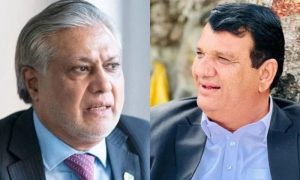NEW DELHI: The Indian government’s directive to remove an online report implicating soldiers in the torture and killing of civilians in Kashmir has drawn attention to press restrictions and censorship in the region.
Caravan, a news magazine, faced official orders demanding the deletion of its investigative report within 24 hours, sparking concerns about freedom of speech and media autonomy.
The report by Caravan shed light on the deaths of three civilians detained by the army following an insurgent attack in December. Despite the magazine’s commitment to challenging the order, the information ministry remained tight-lipped about the directive, heightening apprehensions about government interference in journalistic endeavors.
The incident underscores the challenging environment for journalists operating in Kashmir, where press freedoms are constrained by security concerns and government scrutiny. The region, marred by longstanding conflict and military presence, has witnessed persistent allegations of human rights abuses and censorship.
The detention and subsequent deaths of the three men sparked outrage and calls for accountability. Footage depicting the physical abuse of detainees further fueled public outcry and underscored the urgency of addressing allegations of misconduct by security forces.
Kashmir’s status as a disputed territory adds complexity to the situation, with India and Pakistan vying for control while civilians bear the brunt of protracted conflict and political tensions. The suppression of critical reporting in Kashmir reflects broader trends of press censorship and government control over narrative shaping.
The government’s move to compel the removal of the Caravan report is emblematic of a broader pattern of stifling dissent and curbing freedom of expression under Prime Minister Narendra Modi’s administration. Critics argue that such actions undermine democratic principles and erode institutional checks and balances.
International observers have raised concerns about deteriorating press freedom in India, with the country’s ranking plummeting in global press freedom indices. The erosion of media autonomy threatens to undermine accountability and transparency, posing challenges to democratic governance and civil liberties.
As journalists and media outlets navigate increasingly restrictive environments, defending press freedom and upholding journalistic integrity remain paramount. The incident involving Caravan underscores the importance of robust protections for journalists and the imperative of safeguarding freedom of speech as a cornerstone of democratic societies.























